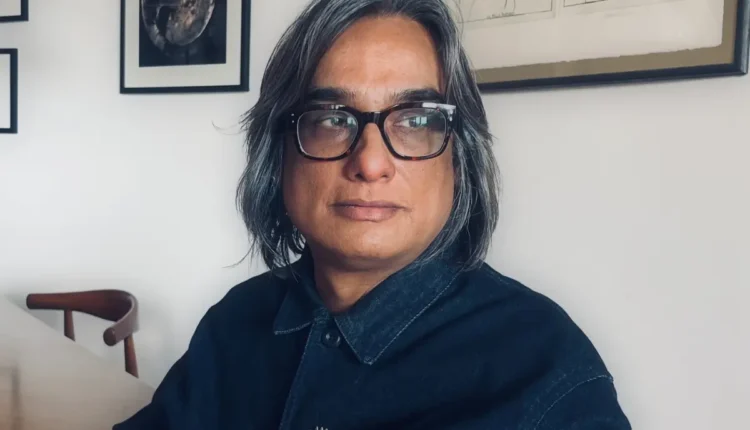Partho Sen-Gupta, an independent film director and screenwriter of Indian origin, has made a significant mark in global cinema. His remarkable journey from the bustling streets of Mumbai to becoming a celebrated name in international filmmaking is nothing short of inspirational. With his unique blend of creativity, passion, and determination, Partho Sen-Gupta has crafted a career that transcends borders and cultural barriers. He is a true cinematic visionary, always pushing the boundaries of storytelling and filmmaking.
Early Life and the Beginning of a Cinematic Journey
Born in Mumbai on September 2, 1965, Partho Sen-Gupta grew up amidst the vibrant and dynamic world of Bollywood. From a young age, he was captivated by the power of cinema and the ability of films to convey powerful narratives.
At just seventeen, Partho Sen-Gupta began working in the art department of major Bollywood productions, learning the intricacies of filmmaking under the guidance of experienced professionals like art director Bijon Dasgupta. His early experiences on films such as Saagar and Mr. India set the foundation for his future career, allowing him to understand the nuances of both commercial and artistic cinema.
Partho Sen-Gupta’s early exposure to the art of cinema in India helped him realize the potential of visual storytelling. He quickly advanced in his career, taking on the role of assistant art director and then art director. In 1988, he worked as the art director for Main Zinda Hoon, a film that resonated with Indian audiences for its thought-provoking narrative. His work garnered attention, and in 1989, he won the prestigious Best Art Director Award.
A Global Education in Filmmaking
With his growing expertise in film design, Partho Sen-Gupta sought to expand his knowledge beyond India’s borders. In 1993, his talents were recognized, and he was selected for a summer workshop at FEMIS, the renowned French film institute. This was a turning point in his career, as it allowed him to hone his craft and direct his first short film, La Derniere…, based on Samuel Beckett’s Krapp’s Last Tape. His experience at FEMIS solidified his commitment to independent and art-house cinema.
Recognizing his talent, FEMIS awarded Partho a full scholarship to study film direction for three and a half years. During this time, he directed four short fiction films that gained critical acclaim across European film festivals. These films, including Le Cochon, La Partition, and La Petite Souris, showcased his ability to blend cultural perspectives and present visually compelling narratives that resonated with audiences worldwide.
International Recognition and Independent Success
Partho Sen-Gupta’s directorial debut in feature films came in 2004 with Hava Aney Dey (Let the Wind Blow). This film premiered at the prestigious Berlin International Film Festival and was praised for its exploration of contemporary urban life in India.
Partho’s ability to create emotionally charged, thought-provoking films became evident as Hava Aney Dey garnered attention at various international film festivals and won several awards. It was later included in the Global Film Initiative’s Global Lens 2008 series and premiered at MoMA in New York City.
In 2008, Partho embarked on a new cinematic journey with his feature film project, Sunrise. Selected for the Pusan Promotion Plan at the Pusan International Film Festival, Sunrise was the only Indian project in the selection, highlighting Partho’s distinctive voice in the world of cinema. When the film was finally released in 2014, it received international critical acclaim, premiering at numerous film festivals and earning accolades for its powerful storytelling and exceptional cinematography.
Australian Cinema and Slam
Partho Sen-Gupta’s global influence continued to grow, and in 2017, he ventured into Australian cinema with his first Australian feature film, Slam. This film, starring Adam Bakri and Rachael Blake, was a significant step in Partho’s career, as it tackled complex themes of identity, migration, and politics. Slam was officially selected for the Tallinn Black Nights Film Festival, where it premiered in 2018. The film was met with critical acclaim, showcasing Partho’s ability to address social issues while maintaining a gripping and engaging narrative.
Partho Sen-Gupta: The Teacher and Advocate
In addition to his filmmaking career, Partho Sen-Gupta has been a passionate advocate for young filmmakers. From 2021 to 2023, he lectured in the Masters in Directing program at the Australian Film, Television, and Radio School (AFTRS). His dedication to nurturing the next generation of filmmakers demonstrates his commitment to the growth of the industry and his belief in the power of cinema to create change.
In December 2023, Partho took his advocacy beyond cinema when he joined 50 other international filmmakers, including Claire Denis and Christian Petzold, in signing an open letter published in Libération. The letter called for a ceasefire and an end to the violence during the 2023 Israeli invasion of Gaza, advocating for a humanitarian corridor and the release of hostages. Partho’s commitment to humanitarian causes further highlights his deep sense of responsibility as a global citizen and artist.
Also Read:India-China Troop Disengagement Advances: Focus on Depsang and Demchok

